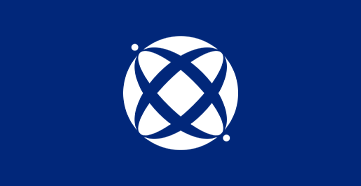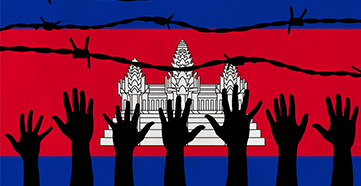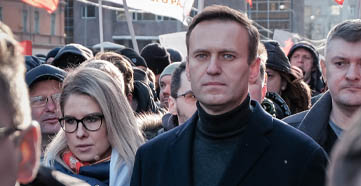|
|
The Italian Communications Authority (AGCOM) has initiated proceedings for online copyright infringement on the application of publishing industry rights holders. The applicants claimed that public channels on the instant messaging platform illegally made thousands of journalistic and literary works from their catalogues available for downloading. AGCOM’s moral persuasion proved pertinent, as Telegram spontaneously removed them. Most recently, emergency legislation has introduced new provisions expanding A
Mark Brzezinski was sworn in as the Ambassador of the United States to Poland on December 22, 2021.
Ambassador Brzezinski previously served as U.S. Ambassador to Sweden from 2011 to 2015, spearheading innovative new approaches to advance U.S.-European trade and landing key Swedish investments, including Volvo’s decision to build a $1 billion factory in South Carolina. He also arranged the first-ever U.S. Presidential visit to Stockholm, which brought together all five heads of governments of the Nordic countries for a summit that galvanized a U.S.-Nordic strategic approach on energy, innovation, and sustainability. In 2015, he was asked by the White House to lead a strategic effort on the Arctic as the first Executive Director of the White House's Arctic Executive Steering Committee.
Most recently, Ambassador Brzezinski was founder and principal of Brzezinski Strategies LLC. He was a Managing Director at Makena Capital Management, where he led the firm’s sustainable and ESG investing efforts. For a decade, he was a partner at the law firm McGuireWoods LLP, where he helped build the law firm's international compliance practice. From 1999 to 2001, he served on President Clinton's National Security Council staff, first as a Director for Russia and Eurasia, and then as a Director for the Balkans.
Ambassador Brzezinski is a member of the Council on Foreign Relations (CFR) and the Trilateral Commission. He was a Fulbright Scholar in Poland in 1991-93, during which he researched and wrote a book entitled “The Struggle for Constitutionalism in Poland.” In 2010, he was named to the State Department's Fulbright Foreign Scholarship Board. He received a BA from Dartmouth College, a JD from the University of Virginia, and a PhD in Political Science from Oxford University.
He is the proud father of a teenage daughter, Aurora Brzezinski.
IBA Annual Conference Paris 2023
Feb 17, 2023
This article will outline the development of China’s restrictions on the cross-border transfer of personal information (PI export), detailing PI export mechanisms provided by the Personal Information Protection Law. It will also explain the practical implications of the restrictions.
This topic explores the growing legal complexities surrounding the prosecution of owners and issuers of encrypted chat messenger services, with a focus on recent high-profile cases, such a EncroChat and Telegram. It will examine the balance between privacy, security and law enforcement, and discuss the implications of these prosecutions for service providers, users and regulatory frameworks.
27th Annual Transnational Crime Conference
Apr 22, 2022
This article discusses the recent SEC case involving PwC and highlights the wider implications for intermediary institutions providing professional services in a tightened regulatory and enforcement regime in China’s banking and financial sector.
IBA Annual Conference Paris 2023
By Yi-An (Ann) Lai. Alipay and the impact of e-payment systems resulting in new regulations in China and other jurisdictions.
Jun 12, 2024
The new Foreign State Immunity Law 2023 of the People’s Republic of China came into force on 1 January 2024. This shifts the country (as well as its special administrative regions, Hong Kong and Macau) away from absolute state immunity to restrictive state immunity, bringing it more in line with the relatively prevalent practice among the international community. This article discusses the status of state immunity in public international law, analyses the new law’s provisions and examines practical challenges that will be faced by those seeking to utilise this law to enforce judgments or awards against foreign states and state entities, and the new law’s innovations that go beyond the United Nations Convention on Jurisdictional Immunities of States and Their Property of 2004 and the UK State Immunity Act 1978.
Legislators and regulators have intensified their efforts to drive social media platforms towards ‘good behaviour’ in response to concerns about the harms they cause, as Global Insight reports.

Sep 27, 2023
The rise in popularity of generative artificial intelligence (‘generative AI’) has ignited the discussion on whether junior employees can be replaced by it. Some have gone to the extent of questioning whether professionals, such as lawyers, can also be replaced by generative AI. Is it wise to replace junior employees or lawyers with generative AI? What factors should be considered before deploying generative AI tools in your business? To consider these questions, we first need to understand the basic workings of generative AI and what it can offer. Fundamentally, AI is intelligence that is not biological. The general understanding is that machines will be ascribed with this intelligence. These machines have the ability to interpret, learn from and process external data in a way that is similar to the capabilities of the human mind. Generative AI is a type of AI program that generates content from a data set. It uses deep learning, a type of machine learning system that behaves like a neural network to simulate the functions of a human brain. In other words, it can mimic human intelligence by exhibiting analytical skills to create new content. Not only can generative AI be utilised in chatbot programs to create text, but it can also be used in programs that can create images, sound or videos. This article will consider two major forms of generative AI, in the context of risks to businesses: chatbots using generative pre-trained transformer technology programs; and image generating programs.
Dec 23, 2020
The International Bar Association’s Human Rights Institute (IBAHRI) strongly condemns the execution of Ruhollah Zam, an Iranian dissident journalist and editor of the website and Telegram channel AmadNews. Mr Zam was arbitrarily arrested in October 2020 and sentenced to death for ‘spreading corruption on earth’. The sentence was confirmed on 8 December and he was hanged on 12 December 2020.
On 1 June 2020, the United States Supreme Court issued its opinion in GE Energy Power Conversion France SAS v. Outokumpu Stainless USA, LLC (GE Energy), holding that non-signatories to an arbitration agreement can compel arbitration of agreements that are subject to the Convention on the Recognition and Enforcement of Foreign Arbitral Awards (New York Convention or simply ‘Convention’) by relying on traditional legal and equitable principles.
This article outlines what to expect in Ukrainian legal market in the course of the next year.
Feb 21, 2019
The International Bar Association’s Human Rights Institute (IBAHRI) is deeply concerned by the continued detention of human rights lawyer, Amirsalar Davoodi, without legal representation. A regular user of social media platforms as well as his Telegram channel, Without Retouch, to speak out about human rights concerns in Iran, Mr Davoodi was arrested in the country on 20 November 2018 and charged with crimes against national security. Access to his lawyer has been denied and family visits left wanting.
Aug 13, 2020
The International Bar Association’s Human Rights Institute (IBAHRI) condemns the detention and use of force against peaceful protesters and journalists in the Republic of Belarus, following the announcement of the initial results of the presidential elections on 9 August 2020. According to the Central Election Commission of Belarus, the elections results indicate that incumbent President Alexander Lukashenko won with 80.23 per cent of votes. Several organisations, including…
Aug 29, 2023
The most recent threat to democratic rule in Cambodia came in the form of July’s national election, which was held against the background of an ongoing media crackdown.
May 24, 2021
The international community breathed a collective sigh of relief on 23 April when opposition leader Alexei Navalny ended a 24-day hunger strike in prison after finally receiving medical care. Yet ongoing efforts to suspend his political organisation and restrict other fundamental freedoms threaten to cripple Russia’s already deteriorating human rights situation.
Apr 04, 2024
The large-scale war waged by Russia on Ukraine has been going on for over two years and has caused enormous damage. The total amount of damage to Ukrainian citizens, businesses and the state itself is yet to be quantified. It already appears to be in the range of hundreds of billions of dollars. It is said that even the total value of all frozen Russian assets in different jurisdictions is far below the value of the damage caused by the Russian aggression against Ukraine.
May 14, 2020
When Roya TV in Jordan aired a report highlighting the concerns of workers over the economic impact of the country’s Covid-19 curfew, the channel was expecting peak viewership as the public stayed home. But, just hours later, two of its top executives were arrested, part of an emerging trend across the Middle East whereby those questioning the official response to the pandemic are penalized and, on occasion, thrown behind bars.
Jun 14, 2022
In March 2014 Russia annexed Crimea and part of the Donetsk and Luhansk region in eastern Ukraine. Fighting has continued in this part of Ukraine since then. From the first days of the invasion, Russia declared the northwestern area of the Black Sea and Sea of Azov a zone of hostilities.
The international community breathed a collective sigh of relief on 23 April when opposition leader Alexei Navalny ended a 24-day hunger strike in prison after finally receiving medical care. Yet ongoing efforts to suspend his political organisation and restrict other fundamental freedoms threaten to cripple Russia’s already deteriorating human rights situation.
Jun 24, 2021
This article discusses the technology and data related developments which made headlines recently and have the potential of changing the way companies do business in India.
Aug 14, 2023
The article discusses key applications available in England and Wales to obtain disclosure to assist with asset tracing and fraud claims.
Dec 20, 2023
This paper dissects in detail the recently passed Nigeria Arbitration and Mediation Act 2023. Specifically, it analyses and explains provisions introduced into the Act which aligns the Act with global arbitration best practices; and the repeal of old provisions that do not meet the standards of global arbitration best practices, or that can be described as archaic.
IBA Global Insight April/May 2017 - Reporting from Athens and Lesvos, Global Insight met lawyers on the frontline of Europe’s refugee crisis as they attempt to gain access to those in greatest need of legal assistance.
Jun 03, 2021
By Kingshuk Bannerjee. Under the current legal framework in India, arbitrability is the norm and non-arbitrability the exception. The Indian Arbitration Act, which is largely premised on the UNCITRAL Model Law on International Commercial Arbitration 1985, adopts the globally preferred approach of minimal judicial intervention. That said, non-arbitrability is, undoubtedly, a thorn in the side of arbitration.
Apr 23, 2025
We were happy to see 110 participants in Munich on 27 March, in the unique location of Upside East for a day of discussions concerning the very challenging times that the automotive industry is now facing. Attendees had a chance to ease into the conference at the welcome cocktail which took place the evening before and it was good to see many familiar faces showing that the conference is becoming a familiar item on the IBA calendar.
Jul 14, 2024
Innovation was the leading topic at the 4th European Automotive and Mobility Services Conference convened on 14 March 2024. Nearly 100 delegates gathered at Upper East, a unique venue boasting an industrial chic vibe on the 9th and 10th floors, located behind Ostbahnhof station.

Sep 26, 2023
The commitment of the European Commission (the ‘Commission’) to create a European space for all digital communications has resulted in a proliferation of legislation (actual and proposed) designed to deal with the many different issues raised by digital communications and services. The governance and enforcement provisions of each of these different pieces of legislation have produced a complex matrix of European Union (‘EU’) institutional arrangements, which reflects both the desire to achieve harmonised conditions of operation across the EU, while at the same time seeking to accommodate the desires of 27 Member States to retain some level of sovereignty over subject-matter as technical and as diverse as that presented in the digital environment. The structuring of the relationships between Commission and Member State bodies or expert bodies, the ‘give and take’ between the institutional actors and the level of legal certainty that can be generated by such multi-player decision-making is likely to pose meaningful logistical and procedural challenges as the different elements of the Commission’s Digital Agenda package come into effect. To better understand the nature of those challenges, we analyse below the governance structures used in the key pillars of the Commission’s Digital Agenda and we seek to draw some preliminary conclusions on the effectiveness of those structures in delivering coherent enforcement on a pan-European level.
May 21, 2024
The 26th Transnational Crime Conference, which took place between 8–10 May 2024 in Milan, Italy, was a resounding success. In fact, it has become the most well-attended international criminal law conference in the IBA’s history!
|






















